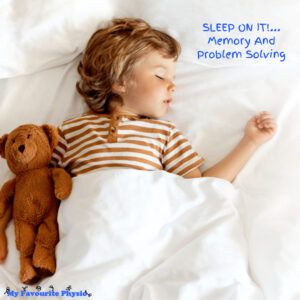15 Mar Sleep Awareness Week 10th-16th March 2024 😴
 There are many different ways in which good quality sleep plays a major role in our ability to learn, to think clearly and to protect ourselves from any future harm to our brains. From infancy to old age, sleep is essential for optimal cognitive functioning.
There are many different ways in which good quality sleep plays a major role in our ability to learn, to think clearly and to protect ourselves from any future harm to our brains. From infancy to old age, sleep is essential for optimal cognitive functioning.
Research ![]() suggests that sleep helps learning and memory in two distinct ways. First, a sleep-deprived person cannot focus attention optimally and therefore cannot learn efficiently.
suggests that sleep helps learning and memory in two distinct ways. First, a sleep-deprived person cannot focus attention optimally and therefore cannot learn efficiently. ![]()
Second, sleep itself has a role in the consolidation of memory, which is essential for learning new information. Memory consolidation takes place during sleep through the strengthening of the neural connections that form our memories.![]()
Being tired to the point of fatigue or exhaustion means that we are less likely to perform well. For babies and children that means not being able to learn new skills or to remember new information learned.
Guidelines to healthy sleep hours: ![]()
Newborn-4 months
Total Sleep: 16-18 hours
Nighttime Sleep: 8-9 hours
Naps: 7-9 hours (3-5 naps)
4-12 months
Total Sleep: 12-16 hours
Nighttime Sleep: 9-10 hours
Naps: 4-5 hours (2-3 naps)
1-2 years
Total Sleep: 11-14 hours
Nighttime Sleep: 11 hours
Naps: 2-3 hours (2 naps)
3-5 yearsTotal Sleep: 10-13 hours
Nighttime Sleep: [10-11] 10-13 hours
Naps: 0-1 hours (naps usually stop by age 5)
6-12 years
Total Sleep: 9-12 hours
Nighttime Sleep: 10-11 hours
Naps: n/a
If you are having trouble with settling your baby or if you have concerned about your child’s learning, reach out to My Favourite Physio on (02) 9790 4233 or DM us @myfavouritephysio to speak to one of our Expert Paediatric Physiotherapists today.
#babysleep #babysleeping #myfavouritephysio #earlyintervention #physio #babyphysio #kidsphysio #bankstown #physiotherapy
